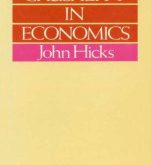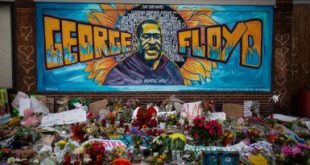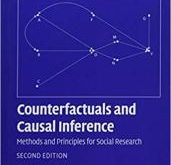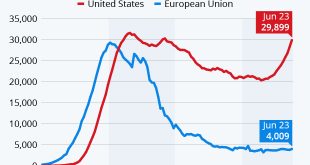from Dean Baker As we get more data in, it seems increasingly likely that we are looking at a horrible and prolonged recession, not a complete economic collapse of Great Depression proportions. The May employment report showed a substantial bounce back in employment, with jobs up by more than 2.5 million from the April level. Retail sales had a huge 17.7 percent jump in May, by far the largest on record, although they are still 6.1 percent below the May 2019 level. Mortgage applications...
Read More »Hicks’ chef-d’oeuvre
from Lars Syll When we cannot accept that the observations, along the time-series available to us, are independent, or cannot by some device be divided into groups that can be treated as independent, we get into much deeper water. For we have then, in strict logic, no more than one observation, all of the separate items having to be taken together. For the analysis of that the probability calculus is useless; it does not apply. We are left to use our judgement, making sense of what has...
Read More »Carter on Keynes
from Peter Radford The biography of Keynes by Zachary Carter ends on a decidedly wimpy note. The concluding chapter is devoted to the financial crisis of 2008 and the subsequent half-hearted sort-0f-Keynesian policy response. Whilst Carter seems fine with his condemnation of neoliberal policies and is clear about the abject failure of the notion that financial markets act in either a self-correcting or a rational manner, he then goes on to ask why Keynesianism has proven to be so...
Read More »Four narratives about central banks
from Asad Zaman The previous post (Three Mega-Events Which Shape Our Minds) explains the importance of history in shaping the world we live in. Historical events (facts) by themselves are not meaningful until they are linked together into a coherent narrative. The mortar which connects the facts must be supplied by our minds, and can never be asserted with certainty. The fact that we can never be certain about the narratives which connect and explain history has led to two polar mistakes....
Read More »Great time for a vacant property tax
from Dean Baker I have long been a big fan of a vacant property tax. As the old saying goes, you tax what you want less, and why would we want vacant properties. This is especially likely to be relevant in many high-priced cities where the demand for commercial real estate is likely to go through the floor due to an increase in telecommuting. As cities mull many types of tax increases to deal with pandemic caused budget shortfalls, a vacant property tax should stand out as a productive...
Read More »The condition of the black working-class in the United States – 9 charts
from David Ruccio Before he was killed, George Floyd worked as a truck, a bouncer, and a security guard. Ahmaud Arbery worked at his father’s car wash and landscaping business, and previously held a job at McDonald’s. Breonna Taylor was a certified Emergency Medical Technician who had two jobs at hospitals in Louisville, Kentucky. Eric Garner worked as a mechanic and then in New York City’s horticulture department for several years before health problems, including asthma, sleep apnea,...
Read More »The rhetoric of imaginary populations
from Lars Syll The most expedient population and data generation model to adopt is one in wh ich the population is regarded as a realization of an infinite super population. This setup is the standard perspective in mathematical statistics, in which random variables are assumed to exist with fixed moments for an uncountable and unspecified universe of events … This perspective is tantamount to assuming a population machine that spawns individuals forever (i.e., the analog to a coin that...
Read More »COVID-19: state of the unions
Capitalism vs. impact science
from Ikonoclast (originally posted as a comment) There is clearly a strong correlation between science denialism and COVID-19 case rates in developed and semi-developed countries. Capitalism has an ambivalent relationship with science. Capitalists love production science and technology, including of course mining, industrial, consumerist, military, security, control and persuasion techs but they hate impact science. The impact sciences of course measure the impacts of science and...
Read More » Real-World Economics Review
Real-World Economics Review




